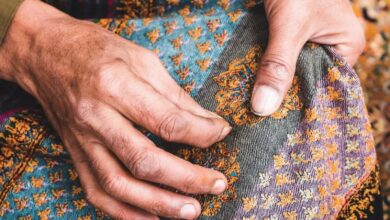Why women’s bodies respond differently to painkillers

Painkillers don’t always work the same way for everyone, and research suggests that they may be less effective for women than for men.
According to National Geographic, “For millennia, treatments for pain have been adminered with a one-size-fits-all approach. It wasn’t until recently that experts officially acknowledged one radical truth: Women experience pain differently than men. They’re also more likely to experience chronic pain conditions and don’t respond as well to painkillers like ibuprofen, steroids, and opioids.”
This highlights the need to consider biological differences between men and women when it comes to pain management.
Story continues below this ad
So, what biological and hormonal differences contribute to painkillers being less effective in women compared to men?
Dr Jagadish Hiremath, Public Health Special, tells , “Several biological and hormonal factors influence how women respond to pain medications. Women generally have higher body fat percentages and different water composition compared to men, which can affect drug dribution and plasma concentration. Hormones such as oestrogen and progesterone also play a significant role in pain perception and the modulation of pain pathways. Fluctuations in these hormones throughout the menstrual cycle can alter receptor sensitivity and impact the efficacy of painkillers, particularly opioids. Moreover, differences in the expression of pain receptors and neural circuitry mean that women might experience pain differently, leading to variations in how effectively painkillers work.”
Cognitive-behavioural therapy (CBT) and mindfulness-based stress reduction can also help manage chronic pain addressing the psychological components of pain perception. (Source: Freepik)
How does the way women metabolise pain medication impact its effectiveness, and does this vary across different types of painkillers?
Women often metabolise medications differently than men, Dr Hiremath states, primarily due to variations in liver enzyme activity, particularly in the cytochrome P450 family. This can result in either faster or slower metabolism of certain drugs, affecting both the potency and duration of their effects. “For example, some non-steroidal anti-inflammatory drugs (NSAIDs) and opioids may be processed at a different rate, leading to lower peak levels or quicker clearance from the body. These pharmacokinetic differences mean that standard dosages may not be as effective in women, necessitating tailored dosing strategies,” the doctor says.
The variability can also depend on the type of painkiller; while some medications might require dosage adjustments, others may simply be less efficacious due to intrinsic differences in receptor binding and dribution.
Alternative pain management strategies women can consider
When conventional painkillers fall short, a multimodal approach to pain management can be highly beneficial. Dr Hiremath suggests, “Non-pharmacological interventions, such as physical therapy, acupuncture, or transcutaneous electrical nerve stimulation (TENS), offer alternative routes for pain relief without the systemic side effects of medications. Cognitive-behavioural therapy (CBT) and mindfulness-based stress reduction can also help manage chronic pain addressing the psychological components of pain perception. In some cases, adjusting the type or dosage of medication under careful medical supervision may be warranted.”Story continues below this ad
Additionally, he mentions that lifestyle modifications — including regular exercise, improved sleep hygiene, and a balanced diet rich in anti-inflammatory foods — can contribute to overall pain reduction and better health outcomes. It is crucial for women experiencing inadequate relief from standard treatments to discuss these options with their healthcare provider to develop an individualised pain management plan that addresses both physical and emotional aspects of pain.
DISCLAIMER: This article is based on information from the public domain and/or the experts we spoke to. Always consult your health practitioner before starting any routine.







